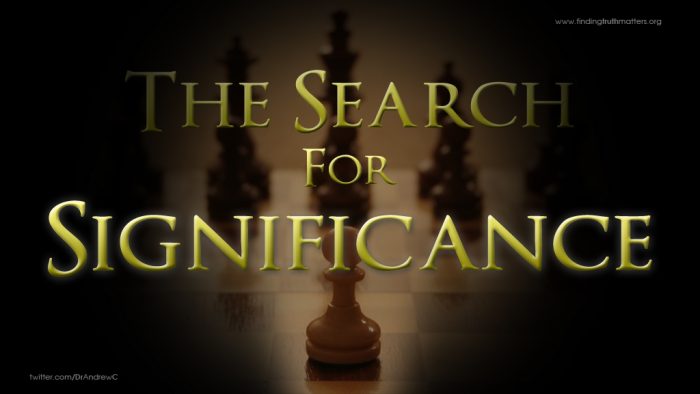
by Andrew Corbett | Jul 5, 2018 | Pastoral
LIFE HAS ONE CERTAINTY
We used to say that there are only two certainties in life: death and taxes. But life has only one certainty – we will all die. The death-rate is still 100%! Yet faced with this absolute certainty, too few people think about it and even fewer people take steps to prepare for it and what lies beyond it. And, as it turns out, not even many people who have become Christians have given much thought either! But I have something to say to those who think religion – and Christianity in particular – is (at best) irrelevant. Please give me just three minutes now – and just three seconds later!
WHY DO PEOPLE CONVERT TO CHRISTIANITY?
Christians have sometimes been accused of promoting a pie-in-the-sky message. But the social research reveals a pretty clear message about why people convert to Christianity. Here are the top three reasons why people become Christians-
1. I was raised in a Christian home.
2. I had a religious experience (answered prayer, dream/vision, etc.)
3. I had a need that converting to Christianity met (drug/alcohol deliverance, marriage repair, loneliness, poverty relief, etc.)
Conversely, the top three reasons why people reject Christianity are –
Science has now disproven Christianity.
Too many doubts about the Bible’s claims.
Too many Christians are hypocrites.
…

by Andrew Corbett | May 10, 2018 | Pastoral
Conversion to Christ begins with an apology. The foundation of conversion to Christianity is repentance. One of the intrinsic elements of repentance is acknowledging guilt and expressing sorrow. We do this in order to reestablish a relationship with someone. We call this “apologising”. There are three steps to a good apology and learning how to do it well could salvage or even strengthen a relationship. But failing to apologise could result in a life of misery and manifold missed blessings.
¶ Finally, I confessed all my sins to you
and stopped trying to hide them.
I said to myself, “I will confess my rebellion to the LORD.”
And you forgave me! All my guilt is gone.
Psalm 32:5
I’ve been a Pastor and Marriage Celebrant for over 25 years. It is one of the joys of my work to prepare a couple for marriage and then conduct their wedding. But this work has also encompassed trying to repair marriages. One of the first things that needs to happen in a badly damaged marriage is repentance. This involves an apology. But I have since discovered that perhaps the majority of people do not know how to apologise. For some, an apology is merely uttering the words: “I’m sorry.” For others, an apology is acknowledging guilt while simultaneously blaming the one they are apologising to for the offence. Neither of these two types of ‘apologies’ are genuine apologies.

by Andrew Corbett | Apr 2, 2018 | Pastoral
Suicide hurts. It is motivated by pain, but causes much greater pain. For those affected by suicide the guilt and anguish it produces is almost unbearable. But since suicide is in the Bible, how can we know that it is wrong? How should we regard the sinfulness of suicide? Is it unforgiveable? How can we help avoid suicide? What should those affected by it know after its happened?
The funeral celebrant rang me to warn me. He was used to dealing with sensitive situations but this one had a few extra layers of complexity. He decided to get me involved. He outlined the story to me and then told me the purpose of his call. When a loved one dies there is often a measure of guilt for those left behind. But when the death is caused by suicide that guilt is compounded. Suicide hurts. The funeral celebrant told me that a young man with a diagnosed mental illness, who had professed Christianity, had taken his own life and his devout mother (who we will call “Betty”) was devastated. The celebrant told me that Betty would ring because her guilt was beyond his expertise due to her Biblical understanding of suicide.

by Andrew Corbett | Mar 19, 2018 | Pastoral
The definition of a crisis is a calamity or event which disrupts a person’s sense of well- being and lifestyle. It is generally short term and requires immediate action in order to restore balance and control in the person’s life. The results of crisis are: anxiety, bewilderment, confusion, desperation, anger, helplessness and even apathy. There is an increased sense of dependency upon others, a sense of urgency, and decreased efficiency in decision making and performance. The account of Judah being sieged by the Assyrians in Second Chronicles 32, involves all the aspects of a crisis. The major distinctive is that it involves a nation of people rather than just one person. The “helper” in this instance was their leader – King Hezekiah.

by Andrew Corbett | Aug 28, 2017 | Pastoral
The vast majority of Evangelical churches encourage the practise of “tithing” and claim to do so because the New Testament teaches it. But does it? What are the believer’s obligations when it comes to endorsing or challenging tithing? What are the local church’s obligations when it comes to teaching, receiving, or addressing tithing for today? How we answer these questions has a huge impact on how believers and churches function as stewards of both finance and God’s Word!
There seems to be a growing challenge to the teaching of “the New Testament tithe”. There are entire internet sites dedicated to the issue. There are chatrooms where believers can discuss it. There are new books being written about it. In our local regional newspaper someone obviously feels so strongly about it that they have taken out provocative advertisements in the Church Notices section condemning any church that endorses tithing as being “a part of the Harlot church of Babylon”. This has become a heated issue…

by Andrew Corbett | Oct 29, 2016 | Pastoral
What is the point to life? How can we find significance for who we are and what we do? Some people look to their work, their money, their relationships, but these things cannot deliver the significance we all crave for.






